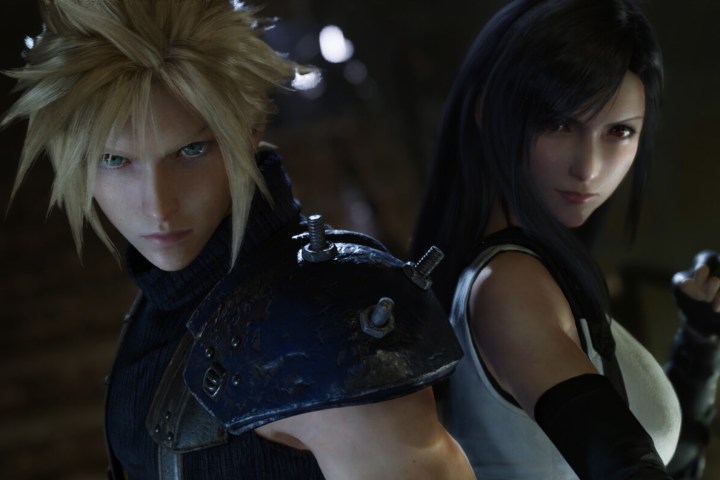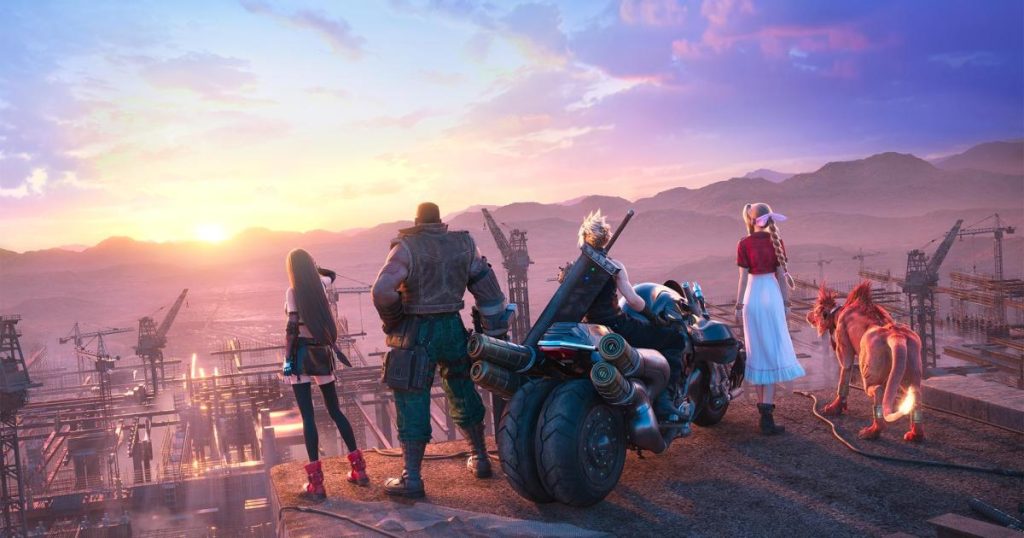
When Final Fantasy VII Remake was released in 2020, emotions were running high.
Fans of the original Final Fantasy VII, a genre-defining RPG that held great significance for many from their childhood, were already skeptical about the project due to its plan to adapt only a small portion of the 1997 release. Those apprehensions were compounded by the fact that the release occurred during the early stages of the COVID-19 pandemic. Despite receiving positive reviews from critics, the unique remake quickly became a divisive game among fans. Even Digital Trends was critical of it at the time, stating, “Although the complete Final Fantasy VII storyline is a fascinating, emotional globe-trotting adventure, this first 40-hour romp is anything but.”
It was an understandable reaction, but hindsight is 20/20. As time has passed since the tense launch, it has become easier to see Final Fantasy VII Remake for what it truly is. With fans currently buzzing about its upcoming sequel, Final Fantasy VII Rebirth, which seems to be more faithful, it’s time to give Remake the critical reassessment it deserves. By setting aside nostalgia, one can recognize it as one of the most subversive big-budget video games ever made.
Bound by Fate
When Final Fantasy VII Remake begins, it initially appears to be a faithful modernization of the original RPG. The familiar opening sequence involving mercenary Cloud Strife engaging in ecoterrorism, blowing up one of the evil Shinra’s pollution-causing reactors, seems fairly routine compared to other retooled sequences. However, this turns out to be a bit of a ruse. The adventure takes a radical turn when Cloud and his companions are haunted by mysterious Whispers that seem to be controlling their fate. These creatures, referred to as “plot ghosts” by critics, attempt to force the group to adhere to the original sequence of events, literally preventing Cloud from deviating from the script. This bizarre revelation completely shifts the focus of Cloud’s Midgar adventure, pitting him in a battle against the concept of destiny.
Understandably, if you never got around to playing it, you can probably see why people felt a little miffed.

No, Final Fantasy VII Remake isn’t a 1:1 recreation of its iconic counterpart, and that is what makes it special. The word “Remake” in the title is somewhat misleading. The game is not a mere remake of Final Fantasy VII; it’s about remaking Final Fantasy VII.
The ambitious project makes more sense when viewed through a metatextual lens. Cloud and his companions are not just RPG heroes, but stand-ins for the creative team attempting to tackle such a daunting project. The original Final Fantasy VII is a beloved game, holding immense meaning for fans and the gaming industry as a whole. A remake must contend with strong emotions, making it difficult to deviate from its iconic story. Any writer working on a revisit would be bound by fate, trapped in a predetermined script defended by its own plot ghosts: protective fans.
Instead of trying to sidestep that reality, Remake turns subtext into text. The result is a remarkably subversive game centered on the struggle to break free from fate. This is delivered in classic Final Fantasy fashion, filled with absurd escalation and a battle against God, but it’s also an incredibly humanistic story. We witness Cloud taking control of his own narrative alongside a development team confidently laying out its own vision for the world of Final Fantasy VII. It’s a life-affirming game, positing that we are the masters of our own destiny — a particularly hopeful message in the context of a story about the inevitable destruction of our planet due to climate change.

Even the divisive design choices in Remake function in that artistic context. Its tight, linear levels reinforce the idea by confining players in claustrophobic corridors with an inevitable exit point. Rebirth, in contrast, will immerse players in open-world spaces — reflecting the party’s newfound freedom. Controversial decisions like these give Remake its power, allowing Square Enix to deliver a remarkably focused story where every aspect feels thematically grounded.
While I’ve always felt that Final Fantasy VII Remake received unjust criticism at launch, the divided reaction to it only reinforces its message. There was immense pressure for Square Enix to meet fan expectations. Straying from the original’s path would have been a risky move that would undoubtedly have upset some fans. However, great art is often not created without daring decisions. Final Fantasy VII Remake wouldn’t be the masterfully self-reflexive game it is without daring to reject cheap nostalgia (for a company that tries to monetize your memories, try the microtransaction-filled Final Fantasy VII Ever Crisis).
Remember this when you dive into Final Fantasy VII Rebirth on February 29 or try its new free demo today. It couldn’t exist without the series fighting back against its own plot ghosts.
Editors’ Recommendations


